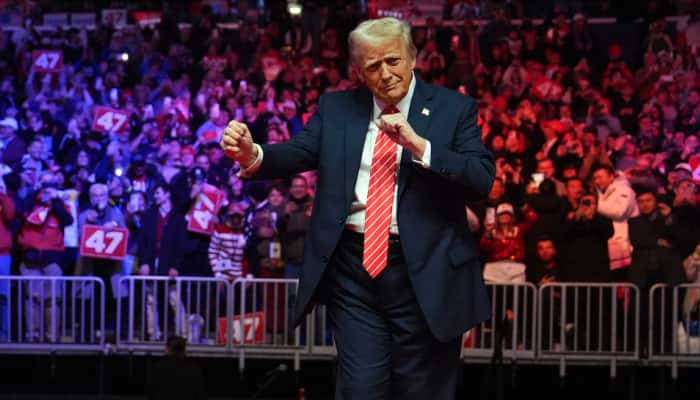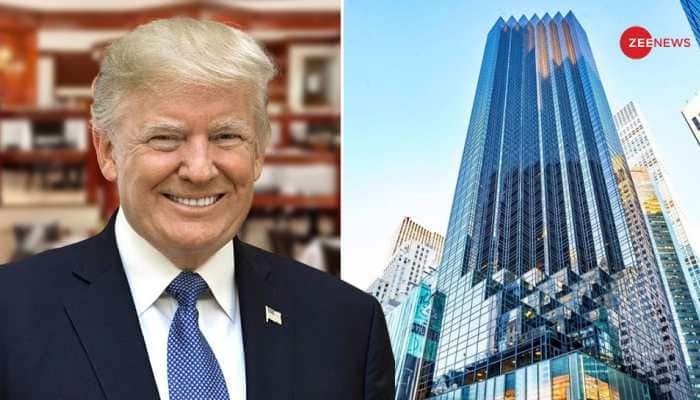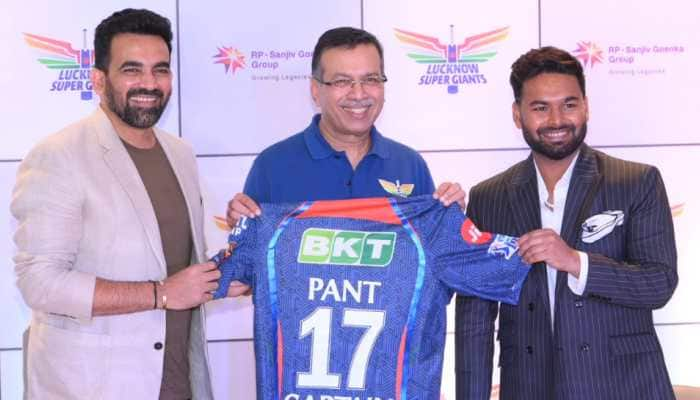Indo-US trade ties have broken every record, GST to only enhance it: US
Indo-American trade has "broken every record", be it defence or agriculture, and the recent reforms in India like the GST will further push economic ties between the two nations, the US said Monday.
Trending Photos
)
New Delhi: Indo-American trade has "broken every record", be it defence or agriculture, and the recent reforms in India like the GST will further push economic ties between the two nations, the US said Monday.
The enhanced bilateral relations are a result of a significant increase in government-to-government dialogue, US Ambassador Richard Verma said.
"We have broken every record that we keep in every category... The highest two-way trade numbers ever between the countries last year has reached USD 109 billion; the highest defence trade numbers last year was USD 15 billion; we even did USD 6 billion cumulatively in agri trade," he said at the USA-India Innovation Forum here.
It is a good story so far but "we can do better", he said.
The recent reforms like the Goods and Services Tax (GST) Bankruptcy Code, national IPR policy and relaxation of FDI norms would help in further pushing the economic ties between the countries, he added.
Verma said India is working on improving ease of doing business and states too are competing with each other in this area.
"We see competitive federalism taking place in states," he said, adding, "we are very excited and we really do believe that the best has yet to come".
The US believes this because India is currently the world fastest growing economy in the word, it will have the largest middle class, college graduates, holders, and mega cities.
"...Two-third of the population is less than age of 35 and there will be massive investment in infrastructure... So, we are quite optimistic and we are quite excited about India," he said.
To achieve this, India would have continuously take reform measures on the policy sides besides stronger Intellectual property (IP) framework, Verma said.
Everyone thinks that it's US companies complaining about IPRs, but when one heard from Indian innovators, their first two or three issues will be that "we need a better IPR environment here in India".
He also emphasised on the need for a change in business culture and focus on financing for industries.
Along with ease of doing business, India needs to focus on the important issue of financing, most of which would come from the private sector.
To stimulate innovation and entrepreneurship, he said also emphasised on supporting people across genders.
He said greater opportunity should be provided to all the people and not just the well-offs.
Further, India and the US have made a lot of progress in areas like civil nuclear, defence and manufacturing, he said, adding that both the sides have also agreed to open consulate offices in each others' countries.
On the innovation forum, Verma said: "I hope this forum can serve as a platform for American and Indian entrepreneurs to exchange best practices and to highlight the leading role of innovation partnerships".
Its work will be reflected in the S&CD proceedings and this will help both the sides to promote policies conducive to innovation and entrepreneurship, he said.
Investments by American companies in India and vice versa now stand at around USD 40 billion.
He also said that India is now the world?s fastest-growing major economy but in order for this tremendous growth to be sustainable, it will require careful investments in urban planning, modern infrastructure, and clean energy.
"Two-thirds of the India of 2030 is yet to be built. This is a daunting challenge, but with the right innovative technologies, India has the ability to leapfrog development in a number of areas," he added.
Further, India has agreed to host the next Global Entrepreneurship Summit (GES) in 2017. It will provide an opportunity for India to showcase entrepreneurs and attract leading international investors and venture capitalists.
Ficci Secretary General Didar Singh said the forum is a private sector initiative.
Deputy Secretary, US Department of Energy (DoE), Elizabeth Sherwood-Randall said private sector has a major role in promoting innovation.
Talking about the Strategic and Commercial Dialogue (S&CD) tomorrow, she said both the sides discuss issues like security, climate and energy, science and technology, space, economic and regional cooperation and finance.
"Energy has become one of the most important strategic pillars of our relationships and we have a very broad portfolio of cooperation," she said.
She announced that the DoE is going to post an energy officer to the US embassy here next year.
"We have a very few officers placed around the world from the DoE in key countries where we are advancing our clean energy agenda," she said, adding that this move would augment the embassy team to advance the ambitious goals that leaders of both the countries have laid out.
She said that under the US-India Partnership to Advance Clean Energy Research (PACE-R), "we are working together through three current groupings, with a fourth to follow next year to improve solar, biofuels and building efficiency technologies".
The US partnership and India's growing leadership on the world stage are crucial to fight the looming threat of climate change and our ability to provide clean, reliable and affordable energy to the people, she said.
Elizabeth said India is leading in developing creative and cost effective solutions to decrease emissions around the world.
"India's domestic programme to deploy 770 million LED bulbs and 35 million energy efficient street lights over three years was an inspiration," she said, adding that to meet the goals of climate and clean energy, "we must accelerate the pace of clean energy innovation".
On Mission Innovation, she said both bilateral and multi lateral cooperation would help "us to meet the ambitious goals of the Paris Climate Agreement".
However, she said the challenge lies in implementing these targets and delivering the desire results and "that is why healthy innovation ecosystems in both of our countries including strong local and regional cooperation and private sector investment are crucial".
Stay informed on all the latest news, real-time breaking news updates, and follow all the important headlines in india news and world News on Zee News.
Live Tv







)
)
)
)
)
)
)
)
)
)
